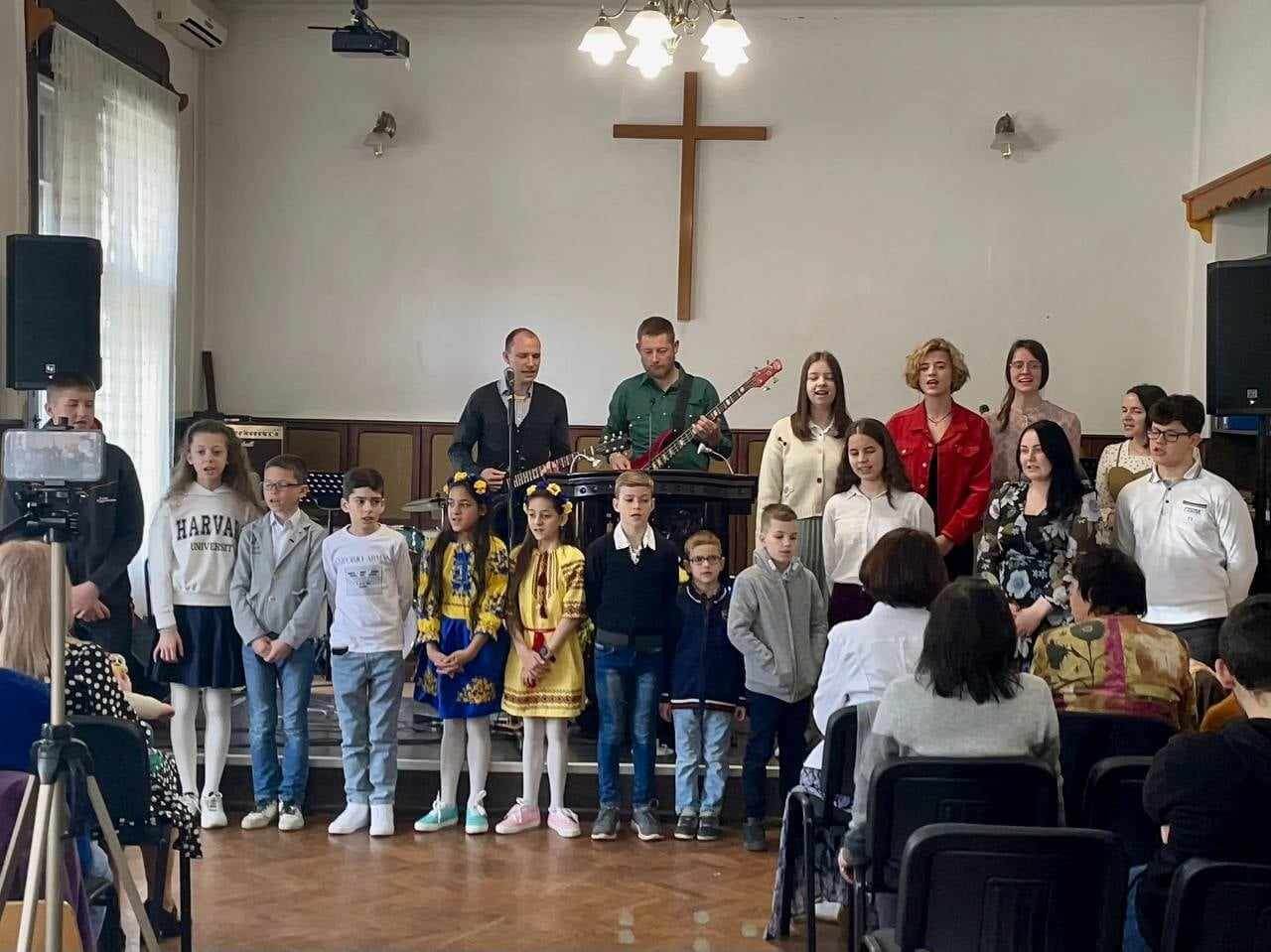Ukraine and Moldova In Mission Together

Project Information
Providing funding for pastors’ salaries; training and programs for local churches and districts; outreach and mission engagement with and for the community; and establishing new churches.
Describe the need affecting community
The United Methodist Church in Ukraine is responding to the spiritual, emotional, and physical needs of a war-weary Ukrainian population. Emotional needs are great because of erratic internal politics and the enduring, inconsistent, yet volatile relationship with Russia that has resulted in ongoing conflict in the Donbass, the annexation of Crimea in 2014, and the most recent invasion and ensuing war that began in February 2022. The war affects everyone. Trauma – named and unnamed – runs deep and will take years to overcome. The war has displaced over 14 million people, with 6 million evacuated to other countries and another 8 million living displaced within the borders.
How will this Advance project help to address the need?
United Methodists in Ukraine adopted a 7-year roadmap for 2017-2022 that was interrupted by the global pandemic and the Russian invasion. Ukraine requested a transfer in its oversight and is currently connected to the Nordic-Baltic episcopal area. Moving forward, the Ukraine UMC will develop a new strategy related to the challenges they face living under invasion, responding to new and growing humanitarian need, ministering to a now dispersed church and training new leaders for planting ministries and offering the hope of the gospel.
Describe the primary goal of the project
The primary goal of this project is to support the general work of The United Methodist Church in Ukraine as it seeks to grow in love with God and neighbor, reach new people for Christ and offer ministries of healing and compassion to our broken world. The church will continue to focus on Methodist identity – through preaching, teaching and development of leadership; ministries of planting; seeking new ways to seed the church in a changing Ukraine, as well as connecting and resourcing the now dispersed church throughout Europe; and ministries of healing by offering shelter and aid to displaced people and opening a center for rehabilitation and trauma care.
Describe the change you would like to see in the community as a result of this Advance project
The United Methodist Church in Ukraine hopes to contribute to the health and well-being of the Ukrainian people. Through a commitment toward spiritual care, evangelism, and the earnest response to mental, emotional and physical trauma, new hope will be delivered to hurting people. As the UMC in Ukraine reestablishes its footprint, it is also expanding it ministries. Efforts are being made to open a UMC center that will be a retreat and training center as well as a trauma and healing center.
Contact Information
Fred Vanderwerf
fredericksevanderwerf@gmail.com
Üllas Tankler
UTankler@umcmission.org

